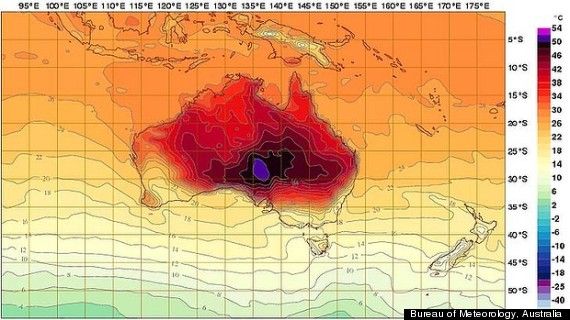Cross posted from The Stars Hollow Gazette
It’s getting warmer and that appears to be the trend. Is it too late to so something? What are the consequences? Is there the political will to take action? Naomi Wolf exams those questions in this article from The Guardian about the impact of the current American drought, the American phenomenon of climate change denial and the effects of “political polarization” on public opinion:
America has led the world in climate change denial, a phenomenon noted with amazement by Europeans, not to mention thinking people around the world. Year after year, the US has failed to sign global treaties or curb emissions, even as our status as a source of a third of the world’s carbon emissions goes unchanged. [..]
But could our denial be cracking, this summer, as, in the heartland – that most iconic of American landscapes – broiling temperatures injure humans and cook fish in the water? This summer a crisis has occurred (though one that, again, is seldom reported on in terms of our outsize contribution to the disaster), as midwestern farmers lost vast swaths of their corn crop to scalding heat and drought. In the American unconscious of wishful ignorance, this disaster and loss was to be borne, as usual, by other people far away. [..]
But we face some serious problems in rising out of our torpor. In “Shifting Public Opinion on Climate Change: An Empirical Assessment of Factors Influencing Concern over Climate Change in the US, 2002-2010“, John Wihbey shows that Gallup surveys reveal Americans’ level of concern varying widely [..]
Wihbey and colleagues’ study found that this fluctuation was caused by, among other factors, political polarization. In other words, when one party says global warming is a crisis and the other says all that is nonsense, and there is no cooperation between political elites at both ends of the spectrum, the net result is apathy.
What is even more ominous, is how China and India have manipulated carbon credits to make a profits from the production of HFC-23, a gaseous byproduct of a coolant that causes global warming and is used in air-conditioners and then destroying it:
When the United Nations wanted to help slow climate change, it established what seemed a sensible system.
Greenhouse gases were rated based on their power to warm the atmosphere. The more dangerous the gas, the more that manufacturers in developing nations would be compensated as they reduced their emissions.
But where the United Nations envisioned environmental reform, some manufacturers of gases used in air-conditioning and refrigeration saw a lucrative business opportunity.
They quickly figured out that they could earn one carbon credit by eliminating one ton of carbon dioxide, but could earn more than 11,000 credits by simply destroying a ton of an obscure waste gas normally released in the manufacturing of a widely used coolant gas. That is because that byproduct has a huge global warming effect. The credits could be sold on international markets, earning tens of millions of dollars a year. [..]
What was intended to fix the problem of hydro-chlorofluorocarbons has now created its own major problem:
The United Nations and the European Union, through new rules and an outright ban, are trying to undo this unintended bonanza. But the lucrative incentive has become so entrenched that efforts to roll it back are proving tricky, even risky.
China and India, where most of the 19 factories are, have been resisting mightily. The manufacturers have grown accustomed to an income stream that in some years accounted for half their profits. The windfall has enhanced their power and influence. As a result, many environmental experts fear that if manufacturers are not paid to destroy the waste gas, they will simply resume releasing it into the atmosphere. [..]
Some Chinese producers have said that if the payments were to end, they would vent gas skyward. Such releases are illegal in most developed countries, but still permissible in China and India. [..]
Already, a small number of coolant factories in China that did not qualify for the United Nations carbon credits freely vent this dangerous chemical. And atmospheric levels are rapidly rising.
Wall St. also has their grubby paws in this, too. Goldman Sachs invested in carbon credits and a coolant factory in Monterrey, Mexico, that receives carbon credits is 49 percent owned by Honeywell. So these companies, especially in China and India, are holding the world hostage. Pay up or we kill the climate faster.
James Hansen, director of NASA’s Goddard Institute for Space Studies joined Eliot Spitzer, host of “Viewpoint” to discuss how heat waves are a indicator of global warming.
“If we continue with business as usual this century, we will drive to extinction 20 to 50 percent of the species on the planet,” Hansen says. “We are pushing the system an order of magnitude faster than any natural changes of climate in the past.”
“We’re gonna have to reduce carbon dioxide emissions, and that is not as difficult as you think. If we would just make fossil fuels pay for their true cost to society, we could begin to move to different energies and energy efficiency,” Hansen contends. “We should be collecting a fee from fossil fuel companies that gradually rises over time and 100 percent of that money should be distributed to the public, not one dime to the government. If we did that, the people who do better than average in limiting their fossil fuel use will actually get more in this dividend than they would pay in increased energy prices.”
NASA’s James Hansen warns escalating climate crisis requires intervention

